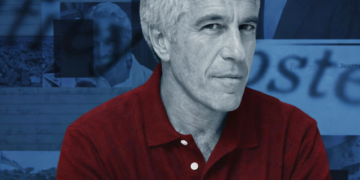The mpox outbreak is not comparable to Covid-19, according to the World Health Organisation, because much is already known about the virus and how to prevent it.
While further research is needed on the Clade one billion strain, which prompted the UN agency to declare a public health emergency of worldwide concern, the spread of mpox can be controlled, according to the WHO’s European director, Hans Kluge.
In July 2022, the WHO issued a PHEIC due to an international outbreak of the less severe Clade 2b strain of mpox, which primarily afflicted gay and bisexual men.The alarm was deactivated on May 2023
“Mpox is not the new COVID. We understand how to control mpox. In the European region, the efforts needed to completely stop its transmission,” he told a media briefing in Geneva.
“Two years ago, we controlled mpox in Europe by direct interaction with the most impacted communities.
We established rigorous surveillance, extensively analysed new cases and contacts, and gave excellent public health advice.

“Behaviour change, non-discriminatory public health action, and mpox vaccination contributed to controlling the outbreak,” according to Kluge. Kluge stated that the risk to the general population was low.
“We will go into lockdown in the WHO European region because it’s another COVID-19? “The answer is clearly ‘no’,” he stated.
Kluge stated that the principal mode of transmission remained close to skin-to-skin contact.
However, he stated that someone in the acute phase of mpox infection, particularly those with blisters in the mouth, could spread the virus to close contacts via droplets, such as in the home or in hospitals.
“The modes of transmission are still somewhat unclear.
Additional investigation is required.”According to WHO spokesman Tarik Jasarevic, the WHO does not endorse masks.
“We do not recommend mass vaccination. We suggest the use of vaccinations in outbreak circumstances for the most vulnerable groups,” he added.
On August 14, the World Health Organisation declared an international health emergency in response to an increase in Clade 1b cases in the Democratic Republic of Congo and its spread to neighbouring countries.
In Essence
For mpox, the WHO stresses that the virus is primarily transmitted through close, often skin-to-skin contact, which allows for more targeted interventions, particularly within high-risk groups. The experience in Europe, where mpox outbreaks have been largely controlled through public health measures, vaccination campaigns, and behavior changes within the most affected communities, demonstrates that mpox is a manageable public health issue.
This approach contrasts with the widespread lockdowns and mass vaccinations that were necessary to control COVID-19.
The WHO’s handling of the recent rise in Clade 1b cases in the Democratic Republic of Congo and surrounding areas also reflects a balanced approach declaring an international health emergency where appropriate but not equating the situation with the global threat posed by COVID-19.

















